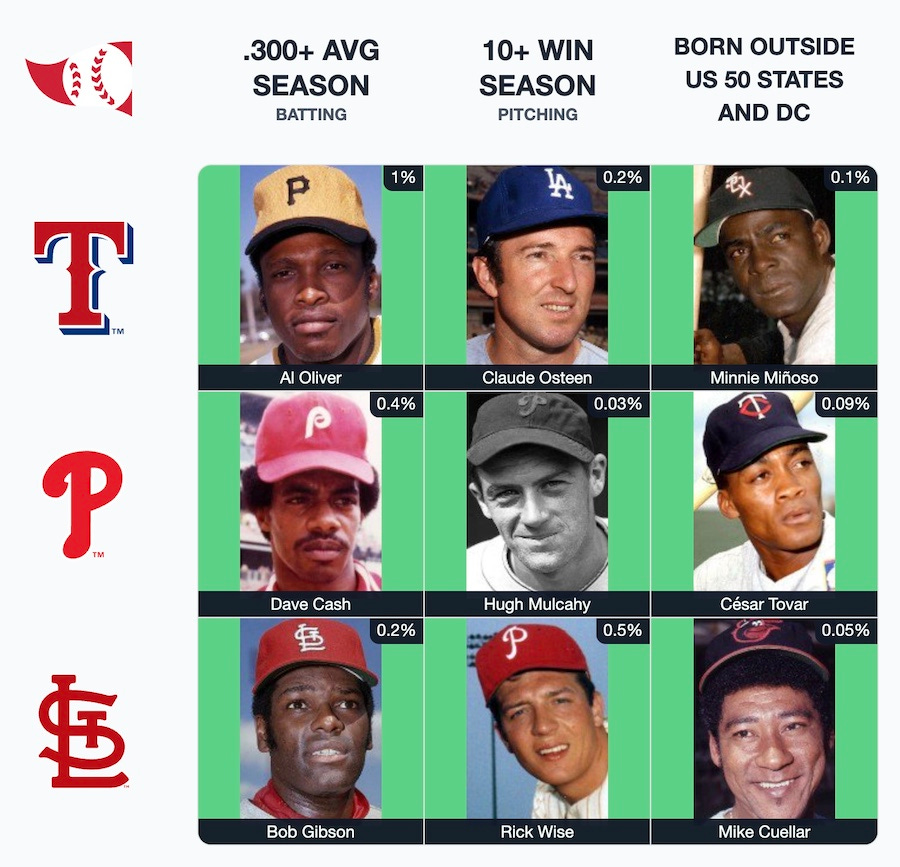Grid #422
The legend of Hugh "Losing Pitcher" Mulcahy
I’ve got a new low score, 3, but there’s no team-to-team squares, and most of the stats are gimmes (.300+ season, 10-win season), so not anything to write home about. So why am I writing a post about it?
One reason: Hugh “Losing Pitcher” Mulcahy in the center square.
Over the years, my father has talked about him quite a bit. Dad was born in 1932, raised near Philadelphia, and grew up rooting for the Phillies. And whenever I think one of my teams sucks, he’ll bring up those Phillies’ teams. How bad were they? They had a pitcher whose nickname was “LOSING PITCHER.”
You can see Mulcahy’s stats here. He led the league in losses twice, going 10-20 in 1938, and 13-22 in 1940—oddly, the only two years he also got MVP votes. You wonder if he wasn’t a decent pitcher on a bad team, but his numbers aren’t great: career ERA is 4.49, career WHIP north of 1.50. He never won more game than he lost, never struck out more batters than he walked.
He did, however, serve four years in the U.S. military during WWII. That’s how his name would often come up in our conversations. I’d mention that Hank Greenberg was the first MLB player to be drafted, and Dad would say no, it was Mulcahy, and it looks like Dad was right. Greenberg was the first AL player to register, in October 1940, but he was classified 4F for flat feet. He asked to be reclassified, was, and in May 1941 was inducted into the U.S. Army. But by then (in March 1941), Mulcahy had snuck in. He served four years.
“World War II cost him at least 80 losses,” my father says.
After Mulcahy retired in 1947, he left one historically bad team for another. According to Wikipedia, he “spent many years as a scout for the Chicago White Sox, and served one season (1970) as their pitching coach.” Why just one season? It wasn’t a great season. In fact, it was one of the worst seasons in ChiSox history—third-worst (not counting this year) after 1932 and 1948, finishing dead last in all of Major League Baseball with a 56-106 record. The rotation wasn’t bad, with Tommy John and Wilbur Wood anchoring it, but the staff itself was in the Mulcahy tradition: no pitcher, none, won more games than they lost.



